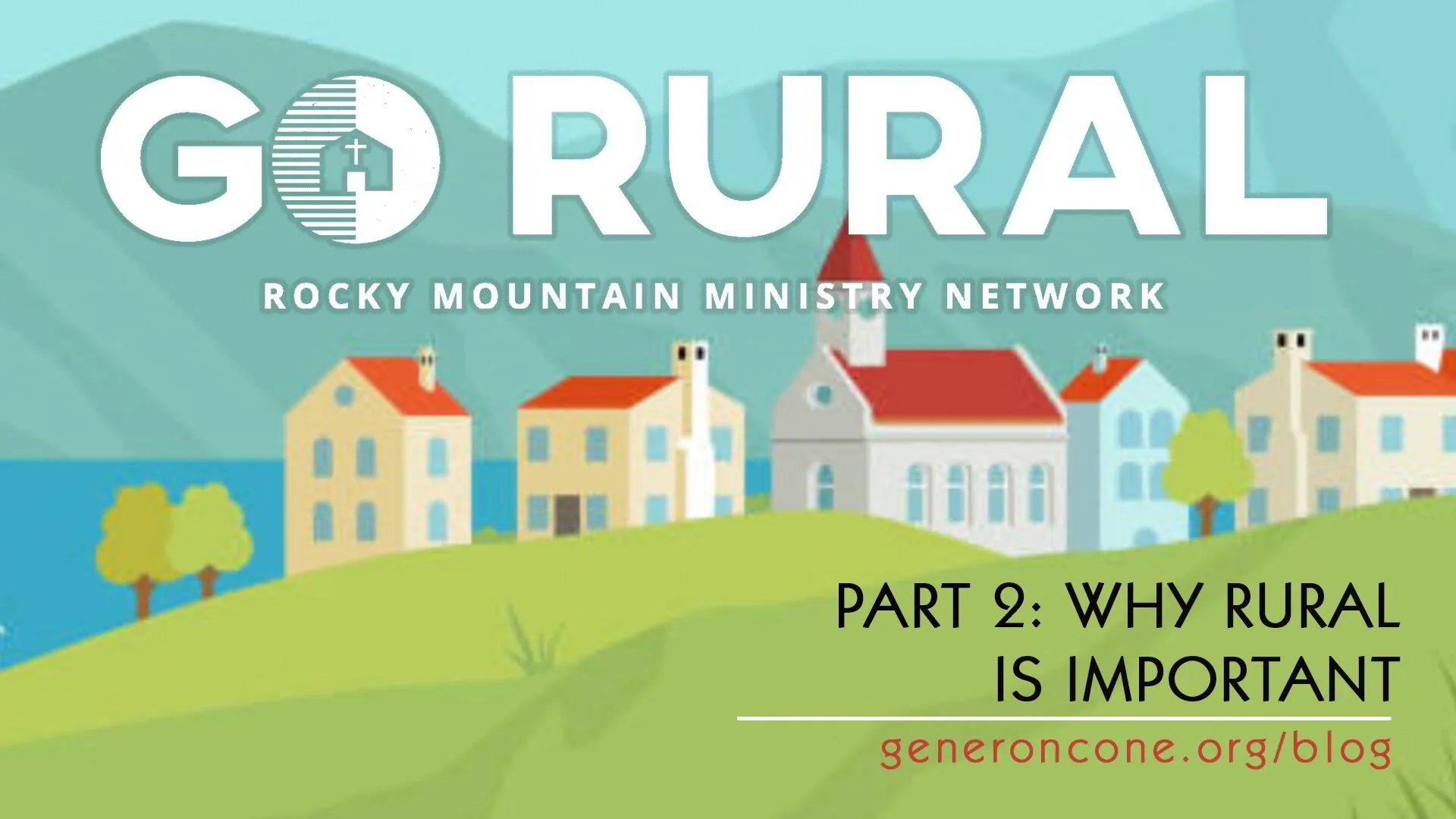With most of Colorado’s and Utah’s population being in cities like Denver, Colorado Springs, Aurora, and Salt Lake City, there is a temptation to focus exclusively on those population centers. However, the rationale for the Network’s continued focus on rural communities is rooted in a few powerful realities.
1. We must maintain a gospel presence in rural communities. Many of our rural churches are the only gospel and or Spirit-filled witnesses in their communities.
2. We must embrace the rural nature of Colorado and Utah. As sister states, Colorado and Utah are rural in nature. Much of our local ministry takes place in cities and towns located outside the metropolitan circles. With nearly 40 percent of our churches being rural in some shape or form, we must be intentional in embracing the cultural and geographic obstacles of our Network.
3. The Great Commission requires a Christlike perspective of lost communities. As an organization, there is a temptation to evaluate all opportunities by the metrics of size, scope, and return on investment. Believing that large cities are more important than rural towns is a secularized and mutated spiritual perspective that does not hold up to biblical history. Nazareth, Galilee, Bethlehem, Bethany, and Cana, to name just a few, are all examples of small towns that made a huge impact upon God’s redemptive history. When it comes to lost people, Jesus challenged His disciples to do more than just look at what was around them; He challenged them to see lost people through the eyes of the Spirit. When he saw the crowds, he had compassion on them, because they were harassed and helpless, like sheep without a shepherd. Then he said to his disciples, “The harvest is plentiful but the workers are few. Ask the Lord of the harvest, therefore, to send out workers into his harvest field” (Matthew 9:36-38). One of the things that makes the Great Commission great is its lack of omission and unwillingness to consider any town or city “flyover country.”
4. Rural communities are increasingly in need of hope. Although people living in rural communities tend to be more conservative, both politically and morally, they are not more evangelized. Recent research found that only 36 percent of those living in nonmetropolitan communities attend church on a weekly basis. That is only 5 percent higher than the national average. As a matter of fact, rural communities are becoming increasingly more in need of spiritual hope. Recent studies show they are beginning to experience unprecedented poverty, increasing crime, rising unemployment, and limited access to medical care and health insurance. In 2007, the poverty rate of rural areas was 16.59 percent (almost 4 percent higher than the national average). Over 90 percent of all the “persistent-poverty” counties—those that have experienced poverty rates above 20 percent for the past 30 years—exist in rural areas. One-third of rural employment is dependent upon goods-producing industries. Poverty in rural areas is most always associated with the lack of adult educational opportunities. Three things have contributed to this: poor quality schools, brain drain (the best students migrating to better educational opportunities in urban areas), and underinvestment in human capital.
5. Authentic success requires systemic success. If we are to be truly effective in reaching lost people in Colorado and Utah, we must see the urban, suburban, and rural church coexisting, collaborating, and working together. The success of one must not be at the expense of another. It was not until the New Testament Church became missional outside of its local context that they experienced a global wave of evangelism. The Spirit-driven relevance found in Acts 11 is evidence of this fact. Paul’s coordinated relief efforts and the dispatching of seasoned ministers to certain locations are evidence that the New Testament Church sought to be connected with other communities of faith different than their own geographic or ministry model. Our Network cannot be successful at the expense of our rural communities.
6. “Rural return” is creating new opportunities for evangelism and church planting. Of our nation’s population, 17 percent is made up of people living in rural areas. As a matter of fact, census reports are beginning to reflect pockets of migration back to rural areas. This rural migration is the result of the “deconcentration” of employment (work from home), modernization of rural life, population aging, and renewed interest in rural living. In addition to these, there are other factors drawing people back to rural communities. In his book, The Forgotten Church, Glen Damon notes that older people are choosing to relocate to rural retirement communities that offer outdoor amenities. Manufacturing companies are also seeing greater opportunities for relocating to rural communities where wages for workers are lower and regulations are less restrictive. COVID-19 and remote work stations have also made more companies willing to explore officing employees in their own homes.
There just is no way around it. As long as our mission field is Colorado and Utah, going rural is one of many requirements for Great Commission obedience.
NOTES
1. Robert Wuthnow, Small Town America, Princeton University Press, 2013, pp. 223-24.
2. David Louis Brown and Louis E. Schaft, Rural People and Communities of the 21st Century: Resilience and Transformation, Polity Press, Cambridge, 2011, p. 194.
3. Richard E. Wood, Survival of Rural America: Small Victories and Bitter Harvests, University Press of Kansas, Lawrence, KS, 2020, p. 17.
4. Emery N. Castle, The Changing American Countryside: Rural People and Places, University Press of Kansas, Lawrence, KS, 1995, p. 230.
5. Wood, p. xi.
6. Brown and Schaft, p. 26.
7. Glenn Daman, The Forgotten Church: Why Rural Ministry Matters for Every Church in America, Moody Publishers, Chicago, 2018, p. 62.


